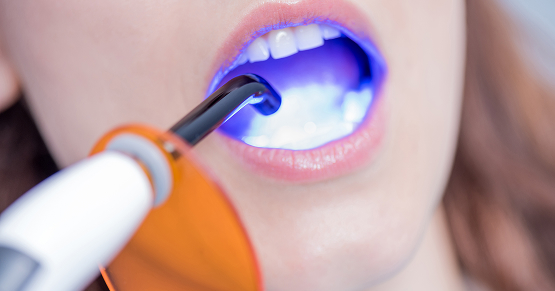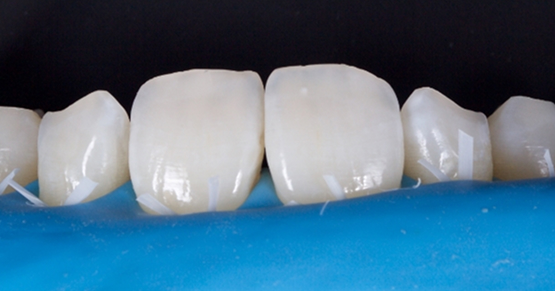Oral Health and Culture: How Race and Ethnicity Affect Dental Treatment
Oral health and culture are far more closely linked than most people realize. Aside from cultural practices that may affect proper dental care, people of different races and ethnicities must contend with barriers to treatment built on systemic racism. To address these issues, dental offices must understand where they stem from and how they hurt patients.
Oral Care as a Gateway to Success
Good oral health is the baseline for success in about every way. It affects our well-being, how we feel about ourselves, and how society perceives us.
Physical

Oral health is important to our overall well-being for obvious reasons. Brushing, flossing, and regular checkups all prevent tooth loss and decay, gum disease, and other oral conditions. But it doesn’t just affect the mouth — things like cardiovascular disease, diabetes and even dementia have been linked to poor oral health.
Mental

Our oral health affects how we feel about ourselves. Ninety-one percent of individuals who rate their oral health as excellent also say their self-confidence is very high. Meanwhile, only 37% of individuals with fair or poor oral health would rate their self-confidence the same way. There is a clear correlation between oral health and self-esteem.
Societal

Teeth also heavily affect how others perceive us. In one study, individuals reported that they viewed someone with straight teeth as happy, friendly, healthy, and trustworthy. Those attributes go a long way toward getting access tojobs, loans, business connections, and all those other things that help communities thrive.
The three components above account for everything in life — from individual health to the health of overall communities. When race and culture impact oral health, they also impact everything else.
How Societal Behaviors Affect Dental Care
The importance of good oral health is learned — and passed down from generations. Some individuals may have lived in communities where oral hygiene was taught in school. Checkups were regular, and brushing was second nature. Conversely, you will have communities where hygiene isn’t a heavy focus and dental care is reserved for emergency treatments — these systemic behaviors within a culture set up a core baseline for dental health.
Smoking is another typical example, as is regular consumption of high sugar and low nutritional value foods. When it is acceptable or prevalent in a community, you’ll also have higher rates of gum disease and oral health care problems. Many of those connections between poor oral health and culture are a result of systemic racism that caused these communities not to have the resources they needed.

Racial and Ethnic Barriers in Dental Care
Individuals who are low-income, uninsured, or members of a racial or ethnic minority are disproportionately affected by poor oral health. This is because many of their barriers to treatment are built into a system that is often stacked against them.
Inequity in Treatment
Outright discriminatory treatment and refusal to provide dental care-related pain medication are reported more frequently by Black, Hispanic, and Asian patients than their white counterparts. In fact, 30% of Black adults and 30% of Hispanic adults reported that it was at least moderately difficult to get care for oral pain, compared to only 21% of white adults. That statistic is often attributed to dentists not taking Black and Hispanic pain reports seriously or believing that these are narcotic-seeking behaviors. Such treatment would deter these individuals from seeking care.
Access to Locations
Patients that live in urban locations are more likely to receive preventative care than patients who live in rural ones. The reason for that is obvious—there will be fewer providers located near them and the ones that will have waiting lists. Meanwhile, both Hispanic and Black individuals living in rural areas have even lower rates of treatment than their white rural counterparts.
Cost
In the United States, oral healthcare and general healthcare are two entirely separate categories. Because of that split system, dental care has the highest burden of out-of-pocket costs for patients than any other kind of health care.
Cost disproportionately affects individuals of racial or ethnic minorities because they are also disproportionately affected by lower income and poverty. The median income for a Hispanic person is 26% less than a white person, while for a Black person, it’s 39% less. Higher costs will impact these individuals more.
Language Barriers
Language barriers present a genuine problem for patients seeking treatment because they cannot clearly explain their issue or communicate their history. That affects the level of care they are given. While some laws require dental offices to provide services for individuals with limited English proficiency, they’re relatively new, and practice hasn’t necessarily kept up with requirements.
Community Water Fluoridation
The rise in community water fluoridation also came with a major decline in dental caries. Unfortunately, these programs face challenges and most often these challenges come in communities where minorities live. Limited public health budgets may cause some communities to eliminate this preventative measure due to lack of funding. There may be few who understand and advocate for the need to fluoridate water. Misinformation regarding water fluoridation is also common.
These are just a few reasons oral health and culture are closely linked. Marginalized communities do not receive the same medical treatment, do not have access to the same care, and don’t get the same education. That affects their oral health, which in turn affects everything about them and their society. This must be addressed for the good of all of us.

How to Help Your Patients
Recognizing the problem is the first step to fixing the inequities caused by oral health and culture. When we understand why there’s a discrepancy, we can take better steps to fix it.
Some of those include;
- Mobile clinics: Physical access is a significant barrier to proper dental treatment. Individuals in rural areas may have to travel miles and miles just for a checkup — it is a full-day event that many of them can’t justify for simple preventative care. Those in urban areas also face transportation issues, long waiting lists, and inequitable care. Mobile clinics can be an effective way to get people the treatment that they need in a place that is convenient for them. Dozens of nonprofits provide mobile clinic vans to help address these communities, and they always need expert dental assistance to run them.
- Awareness: Ask yourself if you perceive pain from patients of other ethnic or racial groups as different from your own. Examine your motives when you dismiss a patient complaint or refuse to provide narcotic pain medication. There is nothing wrong with being vigilant; just be vigilant for the right reasons.
- Patient education: Many individuals may not know how to care for their teeth properly or may not understand the importance of dental hygiene. Providing education on proper dental care can help prevent dental issues from developing in the first place.
- Sliding fee scales: Sliding your fee scale based on a patient’s income can go a long way toward addressing income discrepancies for those affected by systemic racism. This is especially critical when you see uninsured or self-pay patients.
- Advocacy: Advocating for change can help raise awareness and pressure policymakers to address dental care inequity. As a dentist, you are also a subject matter expert who can weigh in on public funding for dental programs, water fluoridation, and other methods of building good dental health care into our societal foundation.
Oral health and culture are linked. Minorities and individuals from different ethnicities face more barriers to proper care than their white counterparts. Because oral health care is so important, those barriers also affect their physical, mental, and community wellbeing. To make dental healthcare more equitable, we must address issues at their very foundation. Expand access, make treatment affordable, educate patients, and improve dental equity for all.
As a new dentist, you could help make care more equitable for the next generation of patients. By building it into your practice strategy, you create a more inclusive office.
SPEAR ONLINE
Team Training to Empower Every Role
Spear Online encourages team alignment with role-specific CE video lessons and other resources that enable office managers, assistants and everyone in your practice to understand how they contribute to better patient care.

By: Spear Team
Date: June 6, 2023
Featured Digest articles
Insights and advice from Spear Faculty and industry experts


